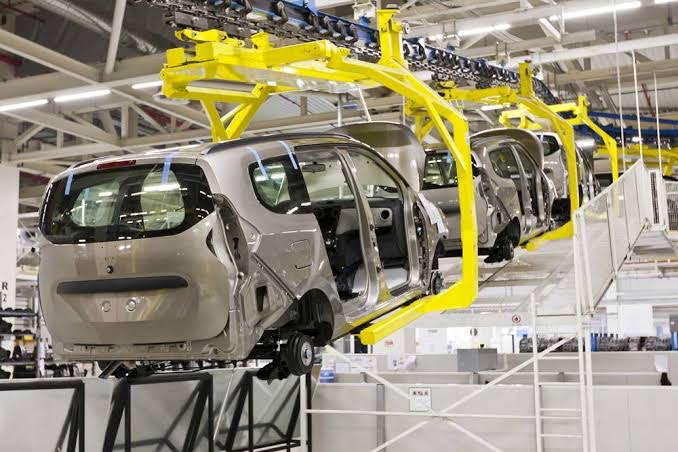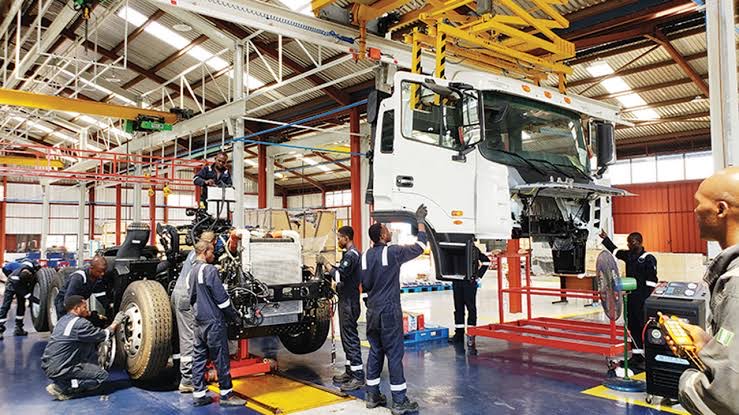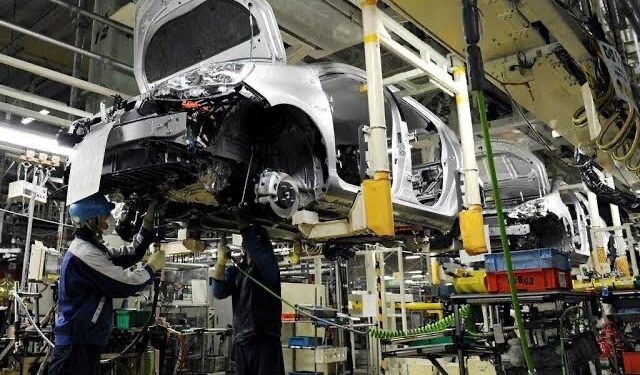President Bola Tinubu has been implored to promptly endorse the National Auto Industry Development Plan (NAIDP) bill into law.
The auto assemblers in the nation collectively made this appeal in a statement following the Nigeria Auto Industry Summit (NAISU) convened by the Nigeria Auto Journalists Association (NAJA) in Lagos. This statement was delivered to both the Presidency and the National Assembly on Monday, July 8, 2024.
Acknowledged as a crucial element for advancing the country’s economy through the automotive sector, the long-awaited NAIDP, once enacted, is anticipated to instill confidence in Original Equipment Manufacturers (OEMs) regarding the nation’s economy and alleviate their concerns about policy inconsistencies.
In a detailed 19-paragraph communique presented to journalists on Thursday, the automakers emphasized, among other medium-term actions, the necessity of reinstating and enforcing the NAIDP. This plan includes a provision mandating the compulsory preference for locally assembled/manufactured vehicles by all government entities, organizations, agencies, and parastatals.

The stakeholders urged governments at all levels to exclusively support vehicles produced or assembled in Nigeria as a means of setting a positive example, conserving foreign currency, and safeguarding employment opportunities.
Similarly, they called upon the National Assembly to reassess the zero variances between the imports of fully built-up (FBU) and Completely Knocked Down (CKD) commercial vehicles, which currently stand at 10 percent.
The summit, organized by the Nigeria Auto Journalists Association in collaboration with the National Automotive Design and Development Council (NADDC), was attended by notable figures such as the Minister of Industry, Trade and Investment, Dr. Doris Uzoka-Anite; Director General of NADDC, Mr. Joseph Osanipin, and representatives from key auto industry stakeholders including the Nigeria Automotive Manufacturers Association (NAMA), Automotive Local Component Manufacturers Association of Nigeria (ALCMAN), Lagos State Government, and the Comptroller General of the Nigeria Customs Service, Bashir Adewale Adeniyi.
Expressing concerns about the unclear process involved in the recent launch and allocation of 1000 units of CNG vehicles to local assemblers, the stakeholders urged the National Assembly to incorporate a provision in the NAIDP mandating the Federal Government to provide equal opportunities for all existing auto assemblers and manufacturers to participate in the supply of CNG vehicles to the government.

Highlighting that the proceeds from the levy imposed on the import of passenger vehicles should be utilized for its intended purpose, particularly in the development of the automotive industry, especially in the realm of the Vehicle Credit Scheme, the communique emphasized, “The government must streamline the CNG process by aligning the operations of the Federal Ministry of Finance and the Nigeria Customs Service concerning the gazetted duty-free allowance on CNG equipment.
“The government should ensure that all imported used vehicles, including salvaged ones, are accompanied by certificates of integrity from their countries of origin.
“The government should address the issue of inadequate access to financing through its fiscal and monetary policies; reevaluate the interest rates offered by Nigerian banks, which are considerably higher compared to other nations.”
As a long-term strategy, the stakeholders urged the Federal Government to actively incentivize Completely Knocked Down (CKD) assembly through contract manufacturing to capitalize on the nation’s existing automotive assembly capacities and swiftly reinvigorate the automotive industry to its former prominence in the 1980s.
“The government should formulate and implement an automotive raw materials and component manufacturing master plan,” the stakeholders added.
In the communique, the stakeholders also urged the government to revive the production of tires, batteries, and glass as a precursor to reestablishing local manufacturing of welded parts (exhaust systems, seat frames); electrical components (batteries, trafficators, wiring harnesses); plastic and rubber components (tires, tubes, fan blades, seat foam, oil seals, hoses, radiator grills, etc.); radiators, cables, filters, brake pads/linings, windshields, side glasses, fiberglass components, paints; rubber products (tires) and subsequently, other Tier 2 and aftermarket components.

































